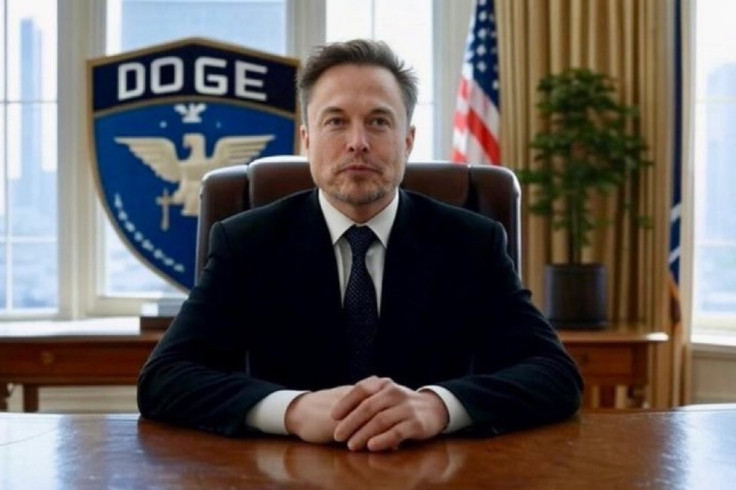How Musk Stepping Back From DOGE Could Jolt Tesla's Future
A Make-or-Break Moment for Tesla's Empire

On 23 April 2025, Elon Musk announced he would scale back his role in the Department of Government Efficiency (DOGE), a move that expects to jumpstart and reshape Tesla's future. After months of splitting his time between Washington and his sprawling business empire, Musk's decision to refocus on Tesla comes at a critical juncture.
The electric vehicle giant is grappling with a 71% profit plunge, a 44% stock slide, and a tarnished brand image tied to Musk's polarising political involvement. This pivot could be Tesla's salvation or a high-stakes gamble that leaves it vulnerable.
Tesla's Perfect Storm: A Brand Under Siege
Tesla's 2025 has been a nightmare. First-quarter sales fell 13%, starkly lagging the 7% growth in the broader EV market. The company's market value has shed £83 billion ($110 billion), driven by a plummeting stock price and waning consumer confidence.
Musk's high-profile DOGE role, where he championed sweeping cuts to federal agencies, has alienated Tesla's core demographic: environmentally conscious, liberal-leaning buyers. Protests have erupted at Tesla showrooms, with vandalism incidents spiking and activists urging consumers to 'sell your Teslas' and 'dump your stock'.
Musk admitted during Tesla's earnings call that his divided attention i.e. juggling DOGE, SpaceX, X, and xAI has made leading Tesla 'extraordinarily difficult'. This distraction has cost the company dearly, with analysts pointing to a 'self-inflicted' brand crisis that's eroded its once-unassailable market position.
Musk's Return: A Shot at Redemption?
Musk's pledge to prioritise Tesla, reducing his DOGE commitment to one or two days a week from May, has sparked cautious hope. Shares surged over 5% in after-hours trading, reflecting investor belief that Musk's laser focus could revive Tesla's fortunes.
His return coincides with ambitious projects: a network of autonomous Cybercabs, a refreshed Model Y, and advancements in AI-driven manufacturing. These initiatives could reposition Tesla as an innovation leader, but they hinge on Musk's ability to rebuild trust.
The company's refusal to issue a growth forecast signals uncertainty, and analysts warn that 'shifting political sentiment' may continue to suppress demand. Musk's DOGE tenure has left Tesla's brand entangled with his political persona, a liability that competitors like BYD are exploiting.
Still, Musk's track record of defying odds as seen in SpaceX's reusable rockets or Tesla's early EV dominance suggests he could pull off a turnaround, provided he navigates the DOGE impact deftly.
The Road Ahead: Opportunities and Obstacles
Stepping back from DOGE frees Musk to tackle Tesla's immediate challenges, but his sprawling commitments raise doubts about his bandwidth.
SpaceX, X, and xAI demand significant attention, and investors like Ross Gerber warn that Musk's absence creates 'decision paralysis' at Tesla. Executives, hesitant to act without his approval, have slowed critical initiatives.
Meanwhile, competitors are closing the gap: BYD's affordable EVs are gaining traction, and legacy automakers like Ford are scaling up electric offerings. Musk's reduced DOGE role could soften political backlash, potentially winning back disillusioned customers. However, Tesla's £400 billion ($530 billion) valuation remains at risk if Musk fails to deliver results swiftly.
Regulatory hurdles, supply chain bottlenecks, and a cooling EV market add further pressure. Success will depend on Musk's ability to balance innovation with brand repair, proving he can steer Tesla through this storm without overreaching.
Elon Musk's retreat from DOGE is a defining moment for Tesla, offering a chance to reclaim its mantle as the EV industry's pioneer. By refocusing on innovation, rebuilding consumer trust, and distancing the brand from political controversy, Musk could jolt Tesla back to greatness.
© Copyright IBTimes 2025. All rights reserved.





















